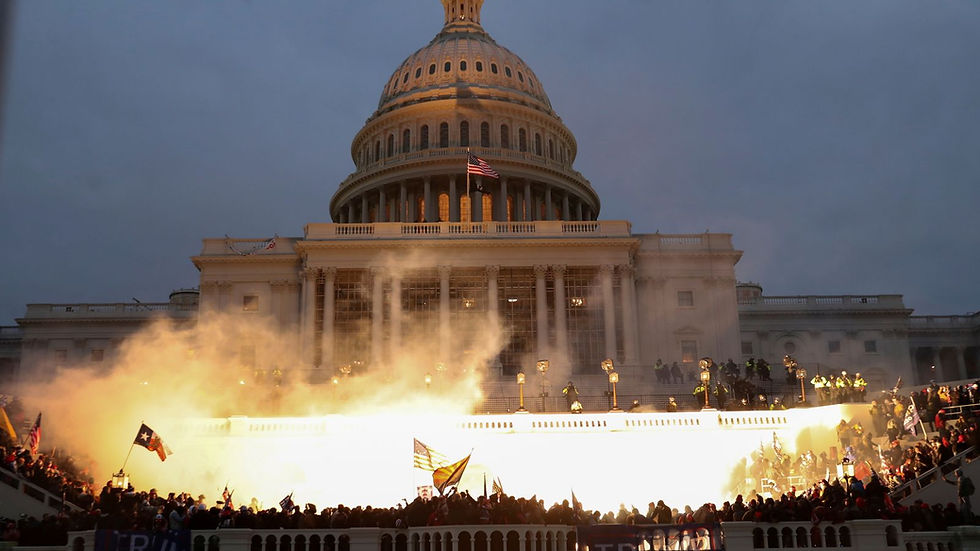Turning off the City Lights: Goodbye to Lawrence Ferlinghetti
- Emily O'Callaghan
- Feb 28, 2021
- 4 min read
Updated: Jul 15, 2021
No matter how great their story, every person’s narrative must meet its end. An inspiration to San Francisco artists and global postmodernist thinking as a whole, Lawrence Ferlinghetti sadly died on February 22nd at his home in San Francisco at the age of 101. As stated by his daughter Julie Sasser, the cause was interstitial lung disease.
As opposed to Ferlinghetti, not many people have a story of such interest and merit, or a tale so closely intertwined with other iconic storytellers. Not many can include a chapter on publishing the greatest Beatnik poem to spring forth from the American psyche, or a passage on sharing a pint with Allen Ginsberg. And upon encounter with the great animal flaw known as death, not many may be blessed with an ending such as Ferlinghetti’s: a closing page that offers so much in terms of hope, inspiration, and new beginnings.

Lawrence Ferlinghetti was born on March 24th, 1919, in Yonkers, New York. Raised by his Aunt and foster parents after his Father’s death (and Mother’s subsequent admittance to a mental institution), his early life was tinged in tragedy. Perhaps it was this affiliation with disruption - the obscuring of the family unit and the landscapes that surround them - that inspired his later BA in Journalism from the University of North Carolina at Chapel Hill. The collective, the individual, and conflict: the theme grew during his service as a naval officer in the U.S. Navy during World War II, and a Master’s degree in English Literature from Columbia University in 1947. His doctoral degree in Comparative Literature saw his dissertation explore the city and its use within modern poetry – an exploration that surely served to discover many of his poetic pals.
After moving into the hazy glow of San Francisco, and scraping together $500 from briefcase corners and jean pockets, Ferlinghetti opened the, now iconic, City Lights bookstore in 1953. “And as soon as we got the door opened,” Ferlinghetti reveals, “we couldn’t get it closed.” He took full ownership of the place in 1955 and established a publishing house of the same name, the same publishing house that saw the creation of the Pocket Poets Series. And who’s rise to fame - a rise with a howl louder and fiercer than the Canaanite God Moloch - coincided with the printing of the Pocket Poets’ pages? None other than renowned Beat poet Allen Ginsberg.

For myself, the thought of discussing minds destroyed by madness (starving hysterical naked) with Ginsberg, or picturing life as a winding road movie with Kerouac, is nothing short of a dream. For Ferlinghetti, it was everyday life. City Lights Publishers published many Beat poets who frequented the “literary meeting place”, with Ginsberg’s revolutionary and controversial Howl prompting Ferlinghetti’s arrest on charges of “wilfully and lewdly” printing “indecent writings.”
The obscenity trial became one of the most significant forces that pushed the American literary landscape towards postmodernism; Ferlinghetti was acquitted in a First Amendment decision by Judge Clayton Horn, who decided that the poem was of “redeeming social importance”. Drugs, sex, and anarchy, mixed in a generous dose of classic Beatnik nihilistic hedonism: the work of Ginsberg, Ferlinghetti, and the eight other literary critics who attested to the poem’s merit forged a poetic movement that used the obscene as a lens to uncover the seedy caricature of Uncle Sam.
Ferlinghetti did not just act as a publisher however; he too more than dabbled in poetry and painting, with many contemporary artists speculating that he too may be a Beat poet. He saw art as a broad socio-cultural force, rather than something that pandered only to the elite – a key idea that manifests itself in collections such as Pictures of the Gone World and A Coney Island of the Mind. But whilst his work did parallel the theme of Poetry as Insurgent Art that many Beat writers followed, Ferlinghetti avers, “Don't call me a Beat. I was never a Beat poet.”

Outside of the art world, Ferlinghetti’s global political engagement ran the course of much of his adult life. He was influenced by concepts such as philosophical anarchism (as discussed over cigarettes and jazz with poet Kenneth Rexroth), and later on took an interest in the possibilities of Scandinavian-style democratic socialism. He urged that poets dug deep into the socio-political dirt of the American landscape, and challenge the oft dismissive definition of the artist’s role in the world. His passion as a political-engager, poet, and publisher cements his incredible legacy, one that will keep the City Lights flickering even after the store shuts its doors.
His work has been recognized through becoming the first poet laureate of San Francisco in 1998, the Los Angeles Times’ Robert Kirsch Award, the BABRA Award for Lifetime Achievement, the National Book Critics Circle Ivan Sandrof Award for Contribution to American Arts and Letters, the ACLU Earl Warren Civil Liberties Award, and the Janus Pannonius International Poetry Prize. But even without the shiny trophies, Ferlinghetti’s artistic legacy, in terms of his own work and those he published, acts as a blinding beacon to artists everywhere, calling them to create and change. An idea that transcends life, and outlives death.
So, in true kleptomaniac postmodern style, I must borrow a few images from the acclaimed A Coney Island of the Mind as I say goodbye.
Ferlinghetti’s legacy hopes that one day, we won’t have to constantly question existence, trying to recall a forgotten America. One day, America will stop will take off that certain awful look of terrible depression. One day, there will be a new beginning.

In Memory of Lawrence Ferlinghetti.
March 1919 - February 2021.







Comments